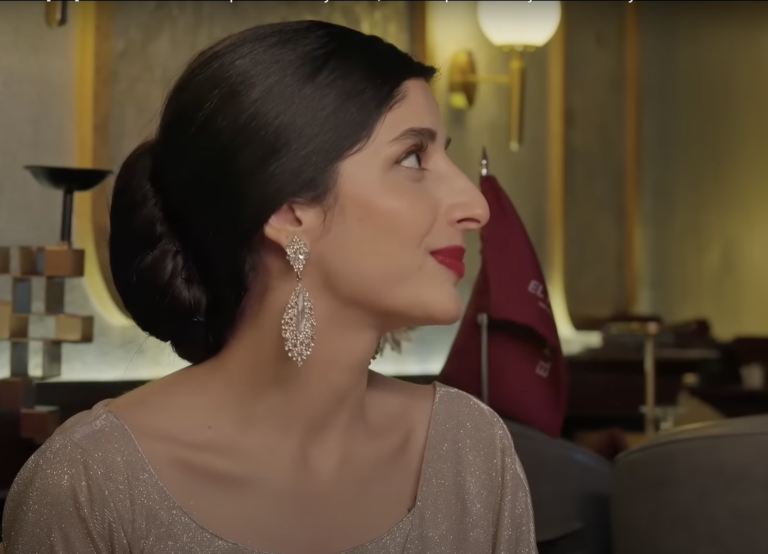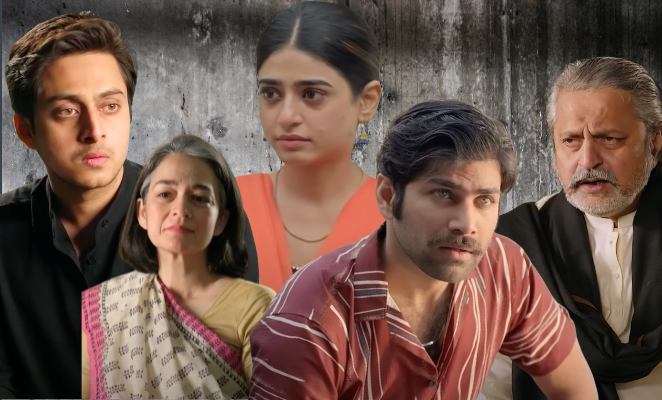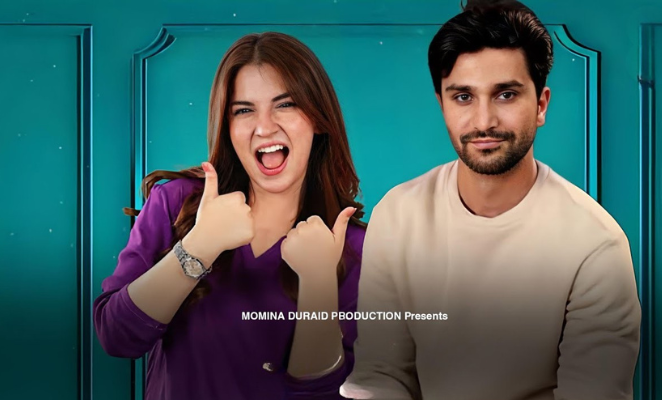In light of last week’s radio show on “Heroines” in Pakistani Dramas, this review will be solely devoted to the women of Humsafar. Yes, yes, I’m sure much can be said about the men (actually much has been said!) but I’m going to continue with the theme and explore some interesting issues that I felt were imperative to the narrative and what I took away from the story. For the sake of continuity I’m going to cover Episodes 13 and 14.
Let me begin by prefacing (brace yourself!) that Ashar was never worth it. He didn’t deserve Khirad. He was a weak man, kamzoor, and I don’t see how women defend him and his decisions. As Khizer says: “All is fair in love and war”, I guess, but this isn’t about the men.
We can all agree that Humsafar is by in large a “woman’s” drama. And boy did the women shine! Khirad, Sara, Farida, Zarina, and Batool Khala were flawless in embodying their characters. It was these women that truly made Humsafar the success it was. Moreover, the series drew upon time-tested stereotypes: garib lekin acchi tarbeeyat ki ladki (aka Khiard), padhi-likhi shehri lekin morally bankrupt ladki (Sara), chaant aur shatir saas (Farida), her well-meaning but spineless accomplice (Zarina), and last but not the least the angel in Hyderabadi heaven, Batool Khala, and made them work perfectly on-screen.
Surprisingly, this isn’t the first time we’ve seen such standard portrayals of women. Countless examples come to mind and many that were discussed in the radio show (side note: I highly recommend a detour to the radio show if only to catch the debate around Haseena Moin’s female leads in Tanhaiyaan). So, how does Humsafar differ or comply?
First up, we have Khirad. Until now we’ve seen seen her as sanjida, somber, sambhali hui ladki, she might not be rich and attractive as Sara and her posse but she’s definitely intelligent, grounded, and well brought up. In these episodes we find that the treatment meted out to her by Ashar and Farida has led to her questioning her own self worth. As she shares with Batool Khala her experiences, we get a glimpse into Khirad’s emotional state.
Various scenes highlight this aspect. Khirad recollecting Farida’s challenge or begging to speak to Ashar, “Baccha, kiska baccha” and “Mujhe apna phone dain, Batool Khala.” What we see is a conflicted girl on the verge of motherhood waiting, pleading to redeem herself. I wonder, though, why must she prove her innocence? If you love someone and trust them (yes, I’m talking to you Ashar), would you not give them that one chance to explain, if not explain then at least to ask them why?
She goes from waiting to redeem herself to giving up on Ashar, her true love, and finally, we see a strong woman emerge at the end of the ordeal. With Hereen’s birth, Khirad can no longer be weak. She needs to live and love for her daughter. A transformation brilliantly captured by Sarmad Khoosat. The scene in the hospital with Mahira Khan’s voiceover was simply brilliant. Everything worked: background music, lighting, camera angles, costumes, and acting. Simple yet evocative. Here we see a strong woman well-aware of her limitations but by no means limited by them.
Khirad’s strong words like “Mein tumse saamna ab siraf roz-e-hashar chahati hoon”, “Tumhari saari takhat khaak mein mil jaye gi”, “Jab mujh par zulm hua to sabse baday zalim tum thay” are testament to a change in Khirad. Call it her transition from being a girl to a woman or whatever else you can imagine but point simply being we, as an audience, transition with Khirad from being mazloom to being strong, to letting go of our past and moving on. For this I give the team snaps up (No, this doesn’t end here I have yet to talk of the finale!).
 On the other hand Sara exhibited the worse traits of her kind. She’s rich, sophisticated, articulate, and can have any man she wants, yet, she’s obsessed with Ashar. Between these two episodes her obsession continues unabated. From confessing to Farida that uskay pyar mein bahut takhat hai to hounding Ashar needlessly, Sara with all the advantages of her upbringing, social position, background, and education constantly seeks Ashar’s approval and attention.
On the other hand Sara exhibited the worse traits of her kind. She’s rich, sophisticated, articulate, and can have any man she wants, yet, she’s obsessed with Ashar. Between these two episodes her obsession continues unabated. From confessing to Farida that uskay pyar mein bahut takhat hai to hounding Ashar needlessly, Sara with all the advantages of her upbringing, social position, background, and education constantly seeks Ashar’s approval and attention.
It’s as though she’s outwardly strong but inside she’s just as fragile and delicate as Khirad. The scene that caught my eye were the jump cuts from Khirad to Ashar to Sara each engrossed in their own thoughts. Khirad as she contemplates her next move while playing with her wedding ring, Ashar as he tries to escape his memories by reading a newspaper, and Sara trying to find strength to go on as she does yoga, was another beautifully shot scene and guess what it had no dialogue!
The three other women, Farida, Zarina, and Batool Khala, offer more nuance and substance. Even though Batool Khala has serious reservations about Farida she encourages Khirad to talk to Ashar (even if he’s acting like a complete child), Zarina who constantly has doubts the ill-fated venture, and Farida as she’s genuinely concerned about Ashar. Far from your stereotypical good-bad dichotomy.
Perhaps the strongest episodes in the entire series, I can never forget how they end with Khirad arriving in Karachi to speak to Ashar. His swanky office building juxtaposed to her dupatta clad figure in an auto! No wonder we love Humsafar. It’s not the men or women it’s the camerawork!
On behalf of Sadaf,
RB (Tweet me!)










 Watch our full review on Yo
Watch our full review on Yo






